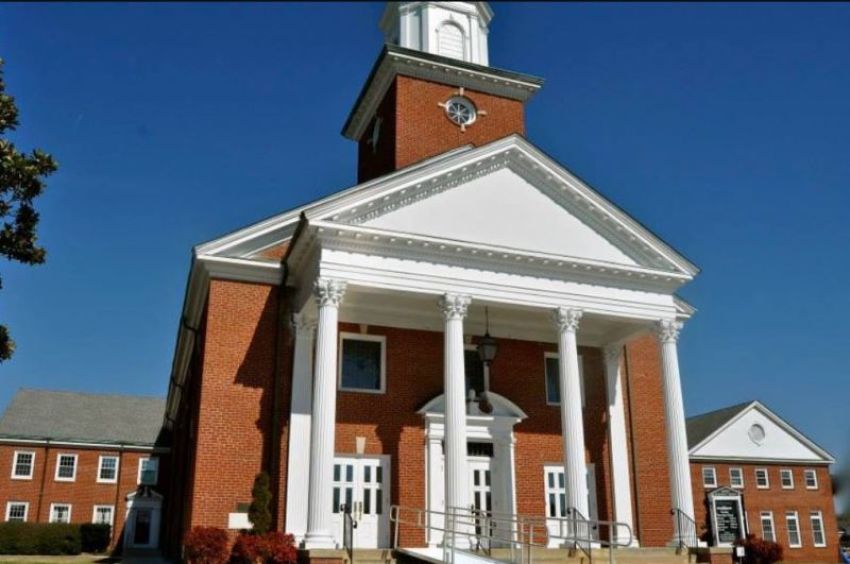North Alabama United Methodists Overwhelmingly Support Discipline on Sexuality

For years, liberal activist laypeople and clergy have urged the United Methodist Church (UMC) to abandon the denomination's traditional understanding of same-sex unions and homosexual behavior. But evidence from at least one large annual conference suggests that tens of thousands of rank-and-file United Methodists do not see eye-to-eye with these activists.
United Methodist Bishop Debra Wallace-Padgett hosted a series of discussions in all eight of the conference's districts. She met with around 1,200 clergy and laypeople representing more than 130,000 congregants in the North Alabama Annual Conference about these issues in the context of the Way Forward Commission. Surveying these individuals on behalf of their congregations demonstrated striking results, according to the annual conference's findings released on Dec.6.
The results excluded a small number "unknown" and non-respondents (54 individuals, approximately 4.5 percent of the total involved in the discussion). But the vast majority of the remainder reported that their congregations favored continuing to enforce the UMC's current standards on sexual ethics and marriage.
Of clergy and lay leaders who responded, an overwhelming proportion (82 percent) said their congregations supported maintaining the Discipline and not ordaining persons in homosexual relationships. Only 18 percent said their congregations disagreed with this position. Regarding the prohibition against UMC clergy officiating same-sex weddings, 80 percent of those who responded said their congregations agreed with the Discipline and only 20 percent disagreed.
These meetings came about following months of prayer in the North Alabama Annual Conference regarding the upcoming Way Forward Commission and the Special Session of the General Conference in 2019, which will seek to settle some key questions about human sexuality in the UMC. These findings from the North Alabama Annual Conference were submitted to the Way Forward Commission for consideration.
Other significant insights from the discussion were that many clergy and lay leaders remain highly ambiguous about the Way Forward Commission. Only 18 percent had clear "positive feelings" about the commission, and 27 percent had clear "negative feelings." Another 39 percent had "neutral feelings," while 10 percent expressed "unclear feelings."
Clearly uncertainty and a lack of clarity abound in the North Alabama Annual Conference regarding the Way Forward Commission and the debate about sexuality. Among the most common concerns about this controversy included:
- The impact on the effectiveness of the UMC's ministry as a result of ongoing disagreements and/or potential outcomes
- Issues related to denominational unity
- Loss of people
- Theological concerns
Many North Alabama United Methodists surveyed were "uncertain" about what the denomination's way forward should look like on a practical level. But some suggestions also emerged repeatedly during discussions. The most common responses included:
- An emphasis on scriptural/theological principles
- Continued discernment and conversation
- Retaining the UMC's current stance
- A focus on the UMC's core mission
So what does this survey signify for the broader United Methodist Church? It's true that the North Alabama Annual Conference is part of the Southeastern Jurisdiction, which tends to be more theologically conservative. But the North Alabama Annual Conference is far from the most conservative in the jurisdiction. So it's likely that many other United Methodists in the Southeastern Jurisdiction feel similarly.
Moreover, membership in the United Methodist Church in the United States is proportionally shifting to relatively conservative regions like the South Central Jurisdiction and Southeastern Jurisdiction. Membership in the United Methodist central conferences in Africa is growing rapidly, with these regions now claiming approximately 40 percent of the denomination's congregants, a segment of United Methodism that tends to be far more socially conservative than the Southeast Jurisdiction. Meanwhile liberal regions of the United Methodist Church, like the Western Jurisdiction and North Central Jurisdiction, are declining rapidly and experiencing financial strain.
Of course, if survey results were gathered from some other United Methodist annual conference, surely they would differ from those within the North Alabama Annual Conference. Proportionally more members of congregations in the Western Jurisdiction, for example, probably hold different opinions about human sexuality.
But the views revealed within the North Alabama Annual Conference likely represent a significant number of congregants throughout United Methodism. Their values will presumably resonate with an increasing number of United Methodists in the years to come.
Thus, the Way Forward Commission would do well to recall that the vocal minority of activists advocating for changing the Discipline do not speak for most United Methodists, at least those in the fastest growing parts of the denomination. This survey is yet another indication of rank-and-file United Methodist laypeople and clergy being much more supportive of maintaining the UMC Discipline's biblical standards than is often reflected among denominational elites.
Originally posted at Juicy Ecumenism.



























